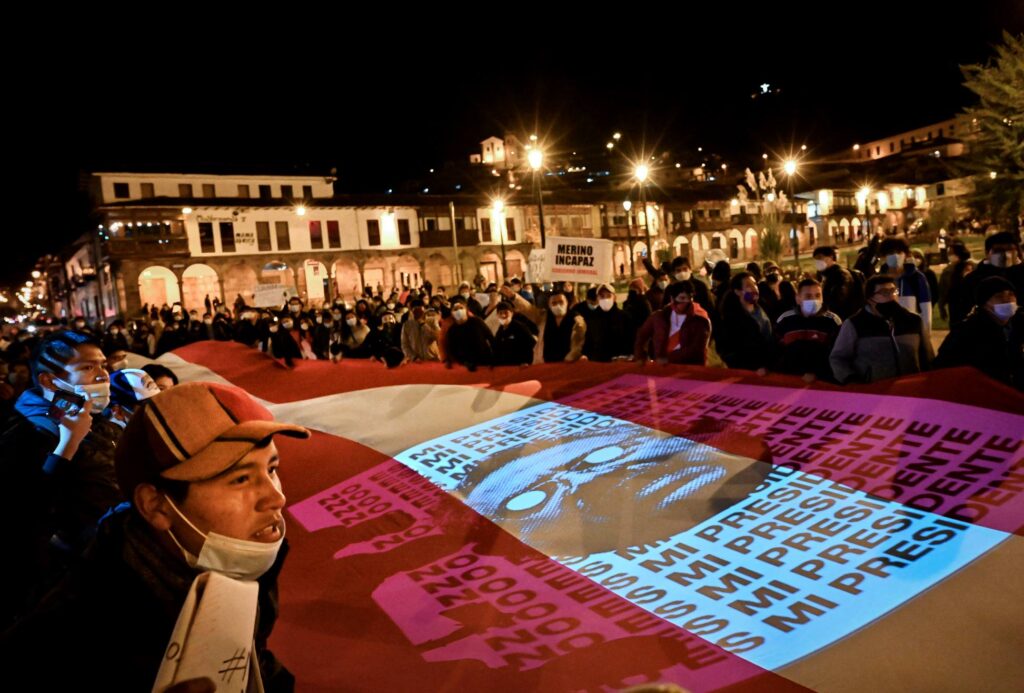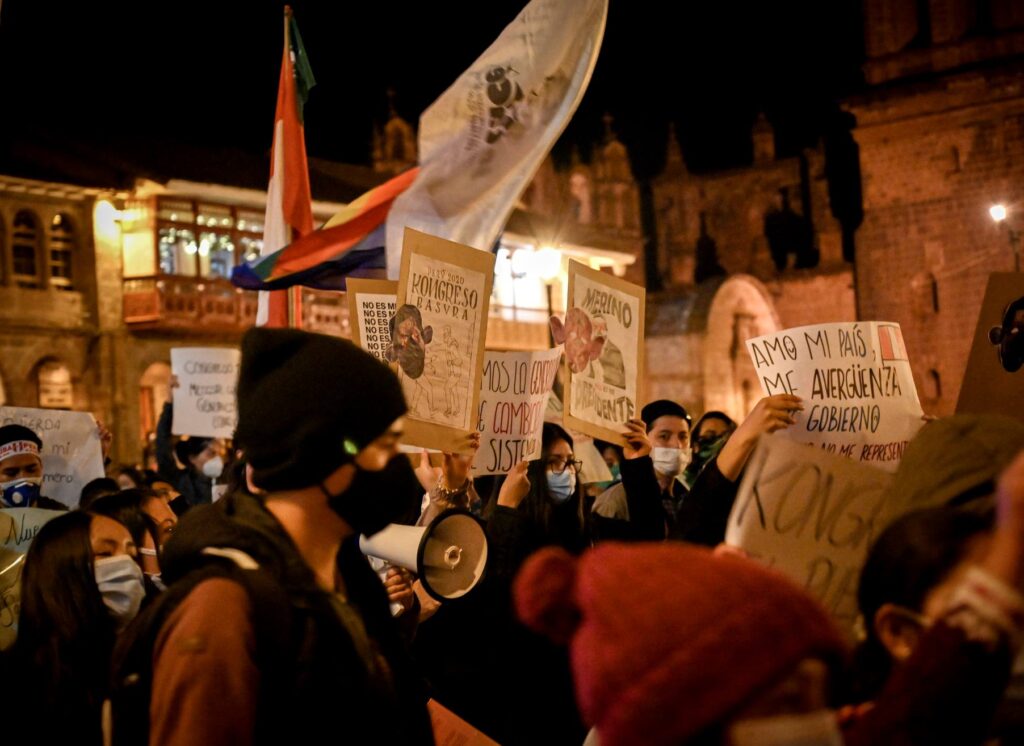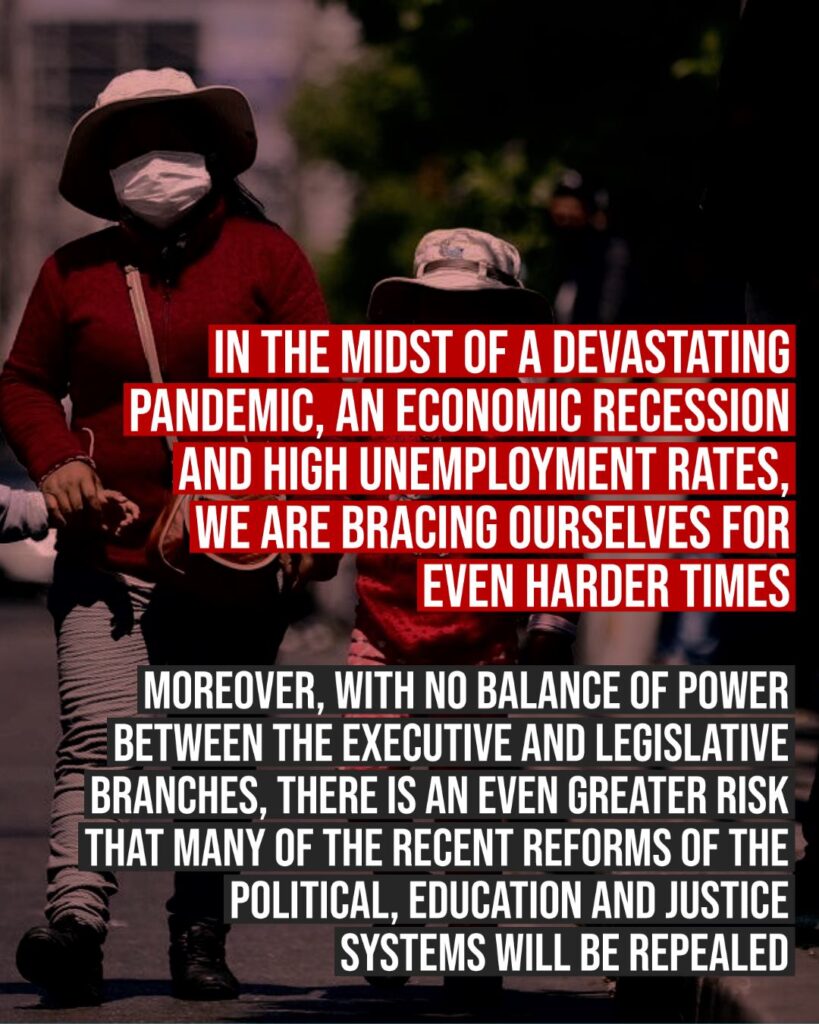Turbulent times in Peru
(Cover photo: Edgard Bazán)
The past months have been turbulent in Peru. Not only have we been through an extremely long quarantine and we are experiencing very serious social and economic consequences from the pandemic, during the month of November the whole country revolted against the irresponsible decisions of the government and the great political instability that this entailed.
“Three presidents in a week: ‘The Peruvians want respect for the democracy‘
Three presidents in a week. This says something about the deep political crisis in which Peru has found itself. It went very quickly: on Monday, November 9, the Congress forced President Martín Vizcarra to resign on charges of corruption. Subsequently, the Speaker of Congress or the Peruvian Parliament, Manuel Merino, proclaimed himself president. The people took to the streets en masse to express their indignation. Almost a week later, after two people died, Merino couldn’t help but leave.

Foto: Adriana Peralta. 
Foto: Adriana Peralta.
On Monday evening, November 16, Francisco Sagasti of the moderate Partido Morado (the Purple Party) – who had voted against the impeachment – was appointed interim president. Mirtha Vásquez will be vice-president, a congressman for the left-wing Frente Amplio. She also becomes the new President of Congress.
Today, Wednesday, November 18, the Constitutional Court will rule on whether or not Congress legally deposed President Vizcarra last Monday.
Corruption everywhere
Vizcarra’s announcement that dozens of congressmen were under investigation for corruption was the last straw.
The formal reason for the ouster of President Martín Vizcarra, referring to the Peruvian constitution, was “moral incapacity to run the country.” The Congressional accusation is based on recent corruption revelations against Vizcarra for taking bribes while he was governor of Moquegua Department (2013-2014) in southern Peru. But that too is only half the truth.
Relations between Congress and President Vizcarra have been difficult from the start. An earlier impeachment attempt two months earlier had fizzled out. The last straw this time around was Vizcarra’s announcement that dozens of congressmen were under investigation for corruption and that for some the final verdict was very near.
‘Vizcarra was someone who did enjoy popular support precisely because he had a clear reform agenda to tackle deep-seated corruption,’ says Peru expert Eva Willems, historian and post-doctoral researcher at the German Center for Conflict Studies. in Marburg.
‘The way in which Vizcarra has been impeached, especially by a group of Congress that put their own interests first, is causing bad blood among the Peruvians. They have taken to the streets en masse, not only in Lima but in almost all cities of the country to express their dissatisfaction with this state of affairs. They are manifesting not so much to show their support for Vizcarra but to express their outrage at the ailing political system. Vizcarra was popular because he showed the will to tackle this.’
On top of corona
No less than seven million jobs were lost due to the impact of the pandemic. The political impasse is very inconvenient. Peru has been hit extremely hard by the corona pandemic, with nearly one million infections and 35,231 deaths out of a total population of 32.6 million. The country is facing a severe economic crisis. An economic contraction of 14 percent is expected in 2020, the worst of all Latin American countries, after Venezuela.
Seventy percent of the Peruvian active population works in the informal economy and that group has been particularly hard hit. No less than seven million jobs were lost due to the impact of the pandemic. The Peruvians therefore find it totally irresponsible to plunge the country into such a political crisis at the moment.

There was a clear political agenda, with presidential elections scheduled for April 11 next year, ending Vizcarra’s term on July 28, 2021. ” (Alma De Walsche, MO * magazine, November 18, 2020)
Now, a month later, things seem to have settled down and we are anxiously awaiting next year’s elections. In a political system where it seems not possible to break the vicious circle of corruption and mafia, there are so far not too great expectations and we remain very curious about which representative presidential candidates will be put forward. Hopefully we are on a better track this time. The country and a new generation have already made their voices heard. Is change possible?
The numbers of infections also seem to remain fairly stable for the time being. After many manifestations and protests in which crowds gathered to express their displeasure with the government, the number of infections did not increase significantly in the following weeks. We are therefore looking forward to the first vaccinations and when this can start in Peru.
Read MO * magazine’s full political analysis article here.
